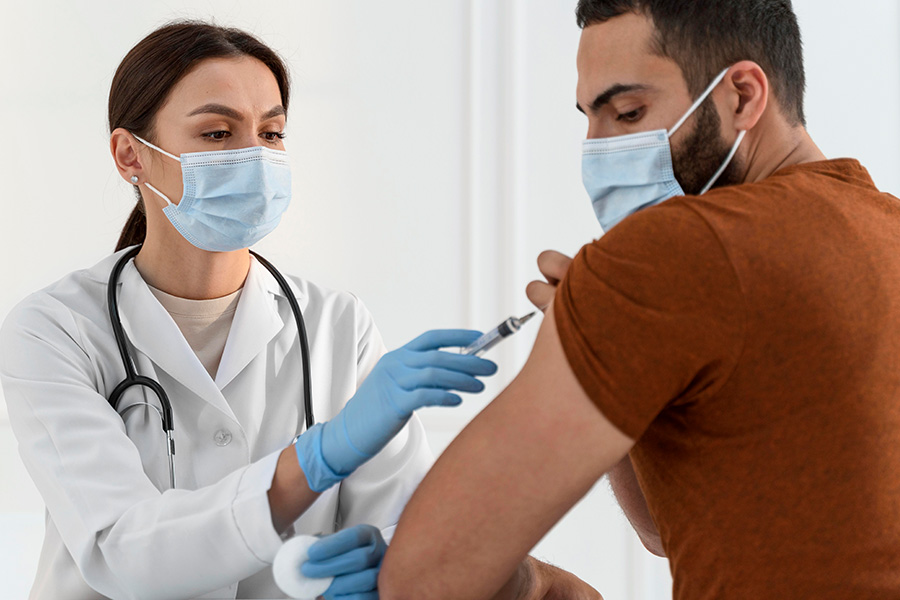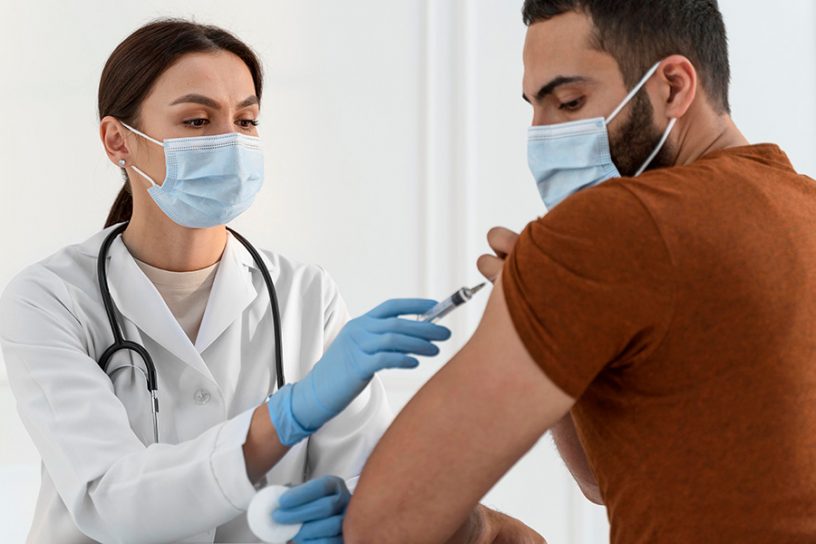
This article attempts to bring to the fore the vaccination struggle of the transgender community, analyse the current vaccination policy through a legal lens, and suggest certain policy measures in this regard, thereby attempting to create a discourse on the same.
Authors
Tripti Bhushan, Lecturer, Jindal Global Law School, O.P. Jindal University, Sonipat, Haryana, India.
Vinayak Sharma, Law student, Delhi Metropolitan Education, Guru Gobind Singh Indraprastha University, New Delhi, India.
Summary
In the context of human rights, a grounded approach to health provides a set of clear principles for setting and assessing health policy and service delivery, targeting discriminative practices and unjust power relations that exist in a social setup. These clearly dictate that one must not be discriminated against when it comes to health, especially during grim situations such as the ongoing COVID-19 pandemic.
However, the sad reality of today would show the challenges existing at the heart of inequitable health and sheer inaccessibility to healthcare faced by transgender persons all over the country, most notable in recent times being in respect of vaccination against the COVID.
From lack of documentation to vaccine hesitancy to lack of awareness to rampant discrimination at the vaccination centres and many more, challenges faced by the transgender community in India in relation to their vaccination have been far too many.
On top of that, the government’s statement in the Lok Sabha denying record of any data of vaccination of transgenders aged above 45 years, upon being asked a few months back, non-representation of the vaccination data of transgenders on the CoWIN dashboard, supplemented by inconsiderable visible action by the Central Government and many State Governments in terms of policy-making in this regard since then indicate a sad state of affairs, which makes it a matter of legal importance.
A discussion on this matter becomes all the more relevant in backdrop of the rising COVID cases in many parts of the country again, a potential fourth COVID wave, and the specific vulnerability of this community in terms of contracting the virus, owing to hormone replacement therapies, treatments for HIV or tuberculosis or gender-affirmation surgeries which are undergone by many in the community.
In this light, the present article attempts to bring to the fore the vaccination struggle of the community, analyse the current vaccination policy through a legal lens, and suggest certain policy measures in this regard, thereby attempting to create a discourse on the same.
Published in: Law School Policy Review
To read the full article, please click here.


